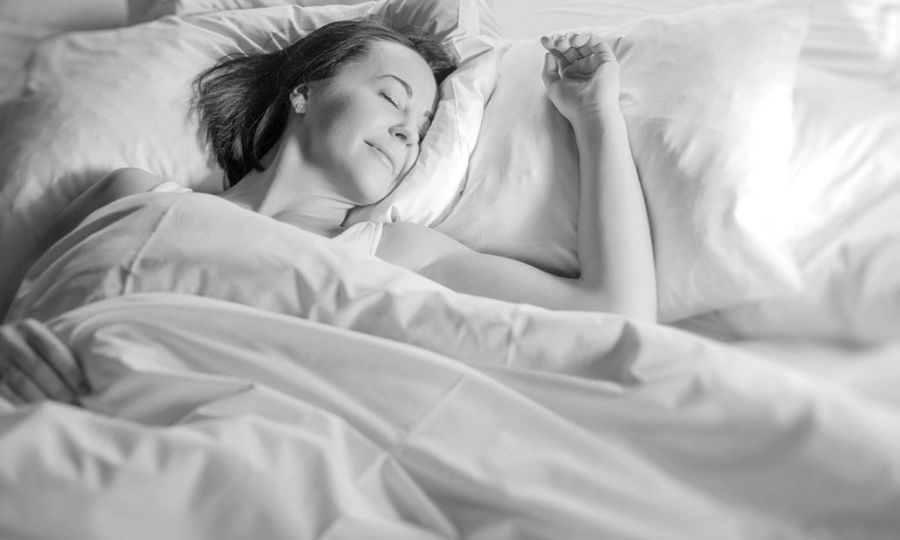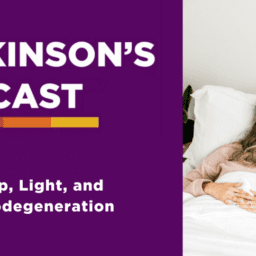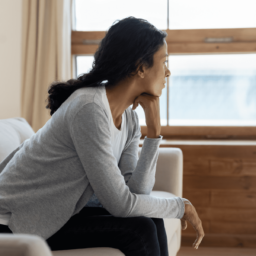Sleep issues are very common among people with Parkinson’s. Often changes in sleeping habits are among the first signs of Parkinson’s.
Fortunately, there are changes you can make to improve your ability to get the rest you need.
Sleep hygiene is an umbrella term for different actions you can take to enhance your sleep. Practicing good sleep hygiene can go a long way towards improving both the quantity and the quality of your sleep each night.
Here are tips to help you practice proper sleep hygiene:
Protect Your Bedroom
Reserve your bedroom for sleeping and intimacy only.
Avoid watching television or interacting with smartphones or other devices while in bed. Not only can this interfere with your quality of sleep, but the light generated by these devices is similar in frequency and temperature to daylight, which can confuse your circadian rhythms and possibly interfere with the production of melatonin, a chemical critical to getting a good night’s sleep.
Prepare Your Sleeping Area
Reduce excess light and noise. Consider using a sleep mask to help block out additional light.
A slightly cool environment will help you fall asleep and stay asleep (experts suggest around 65°F).
It may be helpful to incorporate satin or silk pajamas or sheets if you find it difficult to move in bed. Working with a physical therapist and consulting with your doctor to “optimize” your medications so that they provide relief throughout the night can also help.
Some people find it beneficial to have a bit of background noise in their bedroom, often called white noise. In addition to using an actual source of white noise like a fan, there are recordings and even smartphone apps available with various meditations and white noise designed to help you fall asleep.
If you do a simple Internet search for white noise, you will find a number of free resources, including recordings on YouTube and apps for all different types of smartphones. You could also buy an MP3 directly on your smartphone, tablet or computer via the Apple App store or Google Play store or purchase a CD at a local bookstore or other retailer. Your local library may be able to help you locate some free resources as well.
Set a Sleep Schedule
Develop a routine that allows you to go to bed at around the same time each night and wake up at around the same time in the morning. Having a predictable sleep routine supports your brain’s daily sleep-wake cycle and allows you to fall asleep easier at bedtime and wake up in the morning.
When planning your sleep schedule, consider how many hours of sleep are best for you, how much time it takes for you to fall asleep and the disturbances you may have during the night.
Limit Daytime Naps
If you do find yourself frequently requiring a nap, try to “schedule” a time to nap that is seven to nine hours after waking up. Make it quick and avoid napping for more than 20 to 30 minutes.
Watch What and When You Eat
Another easy way to improve the amount and quality of your sleep at night is to change what you consume in the evening. Many people with Parkinson’s experience constipation as well as Gastroesophageal Reflux Disease (known as GERD or acid reflux).
It may help to avoid spicy or acidic foods (or both), as well as foods that are hard to digest like heavy proteins found in meat and dairy products. In addition, some thicker, more fibrous vegetables and fruit like raspberries and broccoli can be difficult to digest efficiently and should be avoided in the hours before bed. These items may cause reflux and acid indigestion that could interfere with sleep.
In addition, sugary snacks and items like drinks and snacks with caffeine (including chocolate) might stimulate your nervous system and interfere with sleep.
Limit Your Liquids
Excess liquids in the hours before bed may also cause more trips to the bathroom overnight. Restricting liquids in the last two to four hours before bed can often make a difference, but don’t avoid drinking liquids if you feel thirsty.
If you find yourself getting up to go to the bathroom more than one time per night (a phenomenon known as nocturia), working with an incontinence specialist (a physical or occupational therapist with specialized training in the treatment of incontinence) can be very helpful.
Your doctor may also be able to prescribe medications that can address these issues.
Exercise Regularly and Do the Right Exercises at the Right Time
Regular aerobic exercise enhances sleep quality over time and adds to a growing list of potential benefits of exercise for Parkinson’s.
However, intensive aerobic or physical activity before bed can be counterproductive. Instead, schedule these types of activities earlier in the day.
Consider gentle stretching associated with yoga, tai chi, Pilates and similar programs in the evening. Meditation activities and other relaxing exercise programs such as breath work can also be a good addition to your evening routine.
Clear a Path to the Bathroom
Remove clutter and any potential hazards that could trip you up when going to the toilet from your bed. Installing small lights with movement sensors at ankle-level along the way from your bed to the bathroom may help minimize tripping or bumping into things, though keep the brightness level low to make it easier to fall asleep when you get back in bed.
Consider Skipping that Nightcap
Although alcohol may make it easier to initially fall asleep, research shows that alcohol worsens overall sleep quality and may cause you to wake more frequently in the night.
Medical marijuana may also interfere with the quality of sleep (and possibly quantity too), although the research is not conclusive. Have a conversation with your healthcare provider if you are considering medical marijuana to manage sleep or other aspects of your Parkinson’s.

















